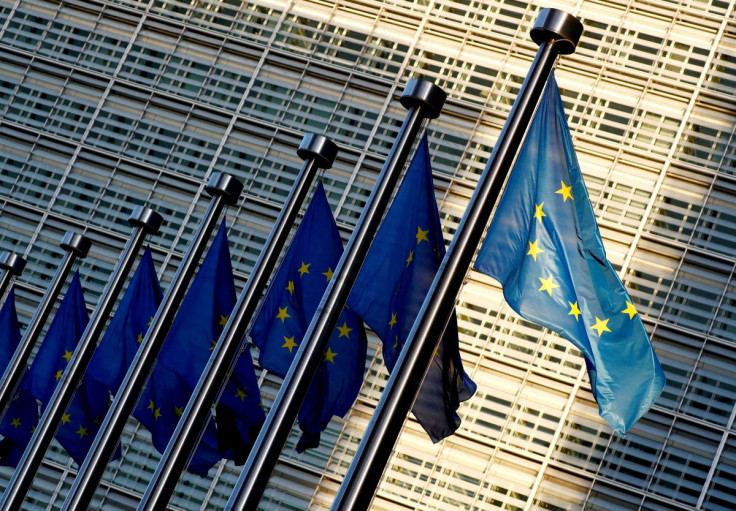EU Wrestles Over How To Help Ukraine, Cut Russian Energy Imports

European Union leaders will grapple on Thursday with how to reduce their reliance on Russian energy and strengthen political and moral support for Ukraine in the face of Moscow's invasion but will rebuff Kyiv's appeal to be granted rapid membership.
Gathering in the opulent Palace of Versailles near Paris, the 27 national leaders will also look at shoring up their defences and economies as sanctions on Moscow start to bite and more than two million Ukrainian refugees flee into the EU.
Latvian Prime Minister Krisjanis Karins, whose country has a border with Russia, said Ukraine should be granted EU candidacy status, while acknowledging this was only "the beginning of a long and difficult road".
"It is important to show a clear, open door for EU membership for Ukraine, that the path is open for them to take," he told reporters.
Other ex-communist countries such as Poland also strongly back Ukraine's EU bid but France, the Netherlands and others are more reluctant to suspend the regular lengthy accession process. It took Croatia, the newest member, 10 years to join.
Ukraine already has agreements on free trade and on closer political and economic ties with the EU.
A senior EU diplomat said the Union could consider integrating Ukraine into its student exchange programme and inviting it more regularly to ministerial meetings once the crisis is over.
"This is our way of saying yes to them, to give them moral support, to show they are part of the European family," the diplomat said.
'EUROPE'S 9/11'
Russia's invasion, launched on Feb. 24, has shattered the European security order that emerged from the ashes of World War Two and the collapse of the Soviet Union in 1991.
Moscow strongly opposes Ukraine's push to join the EU and NATO, viewing it as a threat to Russia's national security. It says its "special military operation" in Ukraine is aimed at changing its pro-Western government and "demilitarising" its smaller neighbour.
Belgian Prime Minister Alexander de Croo said Europe was facing its Sept. 11 moment, a reference to the 2001 al Qaeda attacks on the United States that triggered a U.S.-led invasion of Afghanistan and years of a "war on terror".
"This war in Ukraine is Europe's 9/11," he told the daily Le Soir.
In a joint phone call with Russian President Vladimir Putin before the EU summit, French and German leaders Emmanuel Macron and Olaf Scholz demanded an immediate ceasefire in Ukraine.
The EU has slapped sanctions of unprecedented severity on Russia over the invasion, including cutting seven Russian banks from the SWIFT transaction system, targeting Moscow ally Belarus and blacklisting Russian state officials and billionaire oligarchs close to the Kremlin.
"Russia's war of aggression constitutes a tectonic shift in European history," EU leaders are expected to say in a joint statement, sayin the invasion leads to "growing instability, strategic competition and security threats" for the continent.
However, while the United States has already banned Russian oil imports, EU countries disagree on a deadline for jettisoning Russian fossil fuels.
The EU still pays hundreds of millions of dollars every day to Russia, which provides more than 40% of its natural gas, more than a quarter of its oil imports and almost half of its coal. Austria, Germany, Hungary and Italy are particularly exposed.
Both sanctions and EU enlargement require unanimity among the 27 member states.
© Copyright Thomson Reuters {{Year}}. All rights reserved.





















